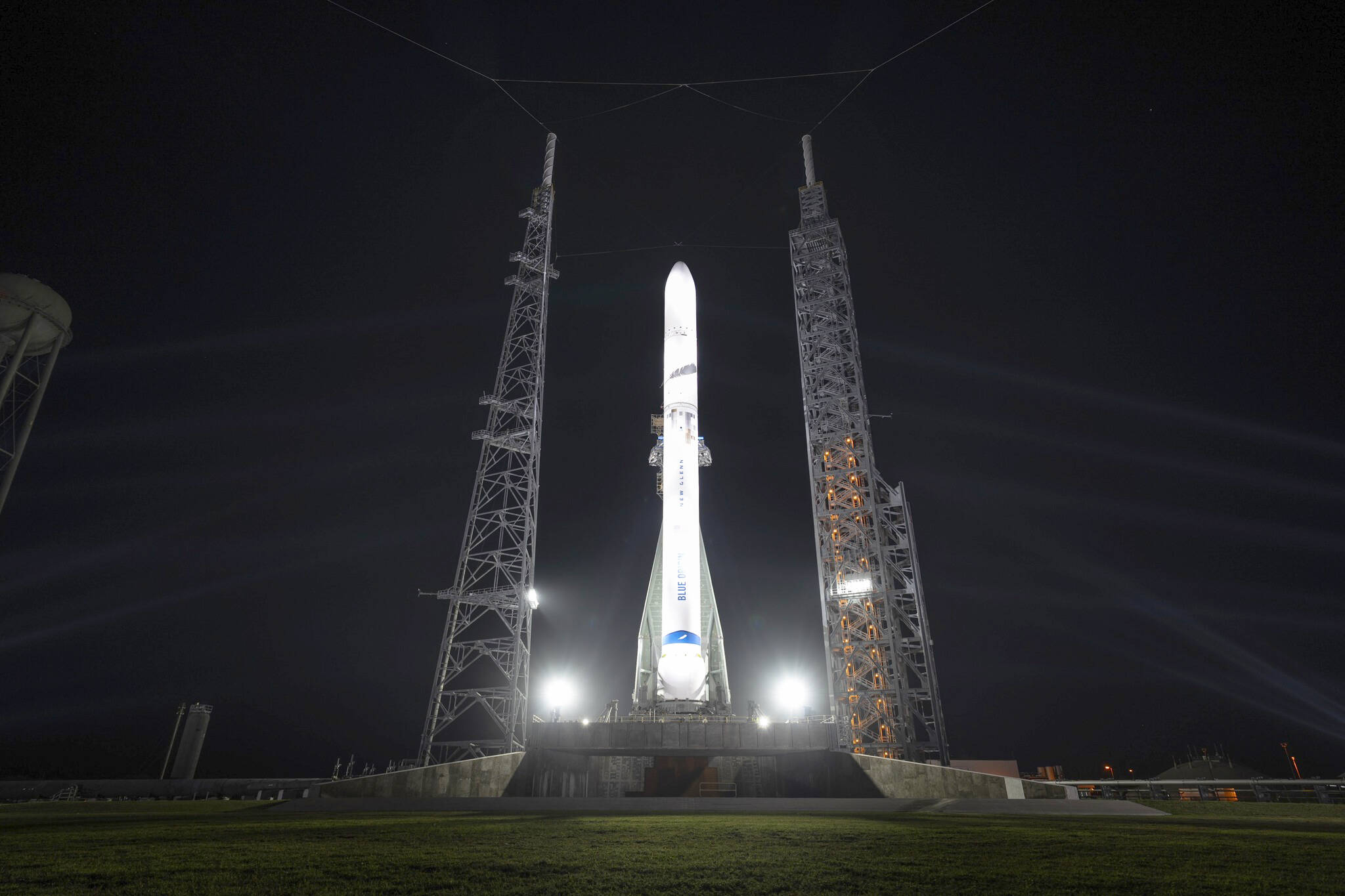Kent-based Blue Origin’s New Glenn vehicle successfully rolled out and upended for the first time Wednesday, Feb. 21 at Launch Complex 36 at the Cape Canaveral Space Force Station in Brevard County, Florida.
“This milestone represents the first view of the advanced heavy-lift vehicle, which will support a multitude of customer missions and Blue Origin programs, including returning to the moon as part of NASA’s Artemis program,” according to a Feb. 21 Blue Origin media release.
The upending is one in a series of major manufacturing and integrated test milestones in preparation for New Glenn’s first rocket launch later this year, according to the Jeff Bezos-owned company.
“The test campaign enables our teams to practice, validate, and increase proficiency in vehicle integration, transport, ground support, and launch operations,” according to Blue Origin. “These tests do not require engines, which are hotfiring at the historic 4670 Test Stand in Huntsville, Alabama and Launch Site One in West Texas.”
The journey to the pad began in December when New Glenn’s first-stage modules were transported from Blue Origin’s factory to the Integration Facility 9 miles away, according to the media release.
“The tests will conclude in the coming weeks following several demonstrations of cryogenic fluid loading, pressure control, and the vehicle’s venting systems,” according to Blue Origin. “Our launch pad and ground systems are complete and will be activated for the first time during the test campaign.”
New Glenn is named after John Glenn, the first American to orbit Earth. The rocket stands more than 320 feet (98 meters) high—roughly the height of a 30-story building—and features a seven-meter payload fairing, enabling twice the volume of standard five-meter class commercial launch systems.
According to Blue Origin, the fairing is large enough to hold three school buses. Its reusable first stage aims for a minimum of 25 missions and will land on a sea-based platform located roughly 620 miles (1,000 km) downrange. Reusability is integral to radically reducing cost-per-launch.
The vehicle is powered by seven of Blue Origin’s BE-4 engines, the most powerful liquid oxygen (LOX) / liquefied natural gas (LNG) engine developed since Saturn V’s F1 engines, according to Blue Origin. LNG is cleaner-burning and higher-performing than kerosene-based fuels.
Blue Origin has several New Glenn vehicles in production and a full customer manifest. Customers include NASA, Project Kuiper, Telesat and Eutelsat, among others. Blue Origin is certifying New Glenn with the U.S. Space Force for the National Security Space Launch program to meet emerging national security objectives.
Talk to us
Please share your story tips by emailing editor@kentreporter.com.
To share your opinion for publication, submit a letter through our website https://www.kentreporter.com/submit-letter/. Include your name, address and daytime phone number. (We’ll only publish your name and hometown.) Please keep letters to 300 words or less.

